John Clarke received his B.A. (1964), Ph.D. (1968), and Sc.D. (2005) from Cambridge University. After a postdoctoral fellowship at UC Berkeley, he joined the Physics faculty in 1969. He received the Distinguished Teaching Award in 1983. He is a fellow of the Royal Society of London, the American Physical Society, the American Association for the Advancement of Science, and the Institute of Physics (UK). He has been a Sloan Foundation Fellow, a Guggenheim Fellow and a Miller Professor. In 1987, he was named California Scientist of the Year and was awarded the Fritz London Prize for research in low-temperature physics. In 1998, he received the American Physical Society’s Joseph F. Keithley Award for Advances in Measurement Science and, in 1999, the National Academy of Sciences’ Comstock Prize for Physics. He was awarded the Hughes Medal of the Royal Society in 2004, and was the UC Berkeley Faculty Research Lecturer in 2005.
Research Interests
One of my main interests is in the development, noise limitations and applications of Superconducting Quantum Interference Devices (SQUIDs). I am particularly intrigued by quantum-limited detectors and measurements. Applications include reading out superconducting “qubits”, novel schemes for ultra-low-frequency nuclear magnetic resonance (NMR) and magnetic resonance imaging (MRI), and searching for the axion.




